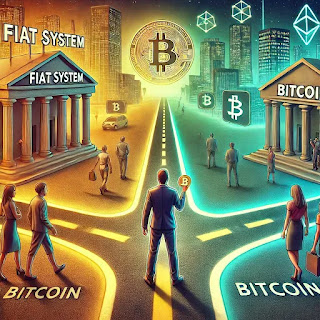Why Linux Is the Blueprint for Future Freedom Tech
We live in a world built on invisible infrastructure. Not bridges and highways, but protocols, operating systems, and networks that shape our digital lives. And at the heart of this unseen scaffolding lies Linux: the quiet conqueror, the unsung hero, and the blueprint for the freedom tech revolution.
Linux: The Foundation You Never See
Linux is like oxygen for the internet, essential, everywhere, but rarely noticed. Nearly 90% of cloud infrastructure runs on it. It powers 90% of web servers. Every single one of the top 500 supercomputers uses it. Your Android phone? Runs on a Linux kernel. The router you're connected to right now? Probably Linux.
It has scaled to billions of devices, silently, securely, and without centralized control. No ads. No corporate overlord. Just code written by thousands of contributors across the globe, improving the system because they believe in it.
Linux didn’t need permission. It just worked. It kept improving. And it kept spreading.
Freedom Tech: Defined
"Freedom tech" isn’t a buzzword. It’s the category for any tool, platform, or protocol that enhances individual sovereignty. That means it’s:
Open-source
Permissionless
Borderless
Resilient
Immune to corporate or governmental capture
Linux is all of those things. And it set the precedent.
From Linux to Bitcoin: A Logical Progression
If Linux is the operating system of the internet, Bitcoin is the operating system of value.
Bitcoin didn’t come out of nowhere. It followed the same ethos: open-source, community-driven, and radically decentralized. Where Linux freed computation, Bitcoin is freeing capital.
That’s why people who understand Linux usually “get” Bitcoin. It’s the same freedom fight, just a different layer of the stack.
Why This Matters More Than Ever
The centralized systems of the 20th century are cracking. Surveillance capitalism, bloated bureaucracy, rigged financial institutions—none of them are built for the digital age. They’re relics running on outdated software.
But Linux? Still running strong. Still evolving. Still free.
And now we’re seeing the rise of other freedom tech in its image:
Signal for private communication
Mastodon for social networking
Bitcoin for money
Matrix for decentralized messaging
IPFS for storage and data sharing
All of them owe a philosophical debt to Linux.
The Blueprint Holds
If you want to future-proof your life, study Linux, not just how it works, but why it works. It’s more than code; it’s a manifesto in motion.
Want privacy? Linux.
Want control over your machine? Linux.
Want to build sovereign tools? Start with what Linux taught us: openness, collaboration, and decentralization.
Final Thoughts
The future doesn’t belong to closed systems. It belongs to communities, to protocols, to tools that anyone can build with, audit, and improve.
Linux showed us how to win without centralization. It’s the prototype for digital freedom. And its playbook is now being used to upgrade everything, from finance to communication.
So if you want to know what the future looks like, don’t look to Silicon Valley.
Look to Linux.
Tick Tock. Next Block.




Comments
Post a Comment